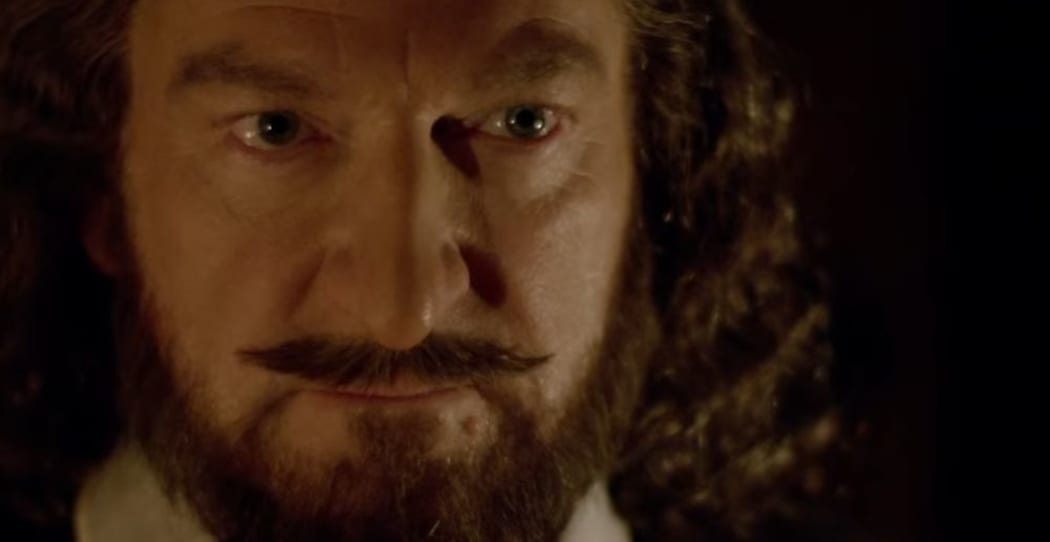Sir Kenneth Branagh’s long obsession with Shakespeare has culminated in a film, All Is True, about the bard’s final years in Stratford-upon-Avon, where he had returned to live “to be this modest man of money.”
Branagh tells Simon Morris that after a lifetime playing some of Shakespeare’s most celebrated characters, the idea of playing the man himself intrigued him, especially this less well-known period of his life.
“I became more and more intrigued by what he regularly wrote about. So he often wrote about twins, he had twins of his own and as we know he lost his son Hamlet who died of it seems unknown causes when Hamlet was 11 in 1596.
“And in the latter part of Shakespeare’s career he wrote often about the loss of children, sometimes directly, sometimes indirectly. And I was in a production of Shakespeare's play The Winter's Tale with Judi Dench, who went on to be in our film of All Is True, and this sense of longing and heartbreak about the loss of a child inside a marriage seemed a very strong recurring theme in Shakespeare.
“The more I worked on plays that involved that, the more I wanted to get back to the life of the man, to see whether this preoccupation came from the real life.”
Ben Elton has written the screenplay of All Is True, Elton was a natural for the job, Branagh says.
“Ben has written a brilliant situation comedy series about Shakespeare called Upstart Crow. And I was lucky enough to be a guest in one of those episodes. And I'd long fancied doing something about these last years of Shakespeare’s life, we know some of the things about it, and there's some very enticing areas of invitation for people who might be interpreting it.
“So, I knew Ben was really well swatted up on his Shakespeare, but I also know, and have done for a long time, that quite aside from his comic brilliance and his political nous and everything, he is a dramatic and serious writer.
“I thought that he was not only very genned up on the subject, but he would be intrigued by the idea of pursuing a subject he knows well in a dramatic fashion.”
Shakespeare’s return to Stratford, after making himself into the leading figure of the age in London, was troubled, Branagh says.

Kenneth Branagh as William Shakespeare in All Is True. Photo: Screenshot
His return is marred by death, sexual scandal involving his daughters and legal problems.
“[In Stratford] Dramatic changes of fortune happened all the time, including Shakespeare's own father, who went bankrupt and was subject to trial and censure for usury - for money lending - Shakespeare himself took people to court and was involved in litigation both in London and in Stratford.
“So it's a society that was on edge, and that undercurrent of tension lies, you know, inside that the film itself.”
To survive in gossipy and often malicious times, Shakespeare developed a protean quality, Branagh says.
“Stratford itself was a very litigious society, a very gossipy society and an uncomfortable society, where people told tales on each other, something again, I think that is an example of his longevity is the difficulty with which people have trying to pin him down.
“Across Shakespeare, you can produce evidence from the plays to suggest that he was definitely Protestant; no, he was definitely Catholic; no he was definitely an agnostic; no he was definitely an atheist. I think what he was, was incredibly agile and adept at dealing with volatile social and political times, and none more than in Stratford itself, where all of this was happening in a small community where everyone would have known each other.”
Sir Ian McKellen, who plays the Earl of Southampton, says in the film that Shakespeare has the largest of minds but lives the smallest of lives. For Branagh and Elton this was a “defining characteristic” of the man.
“Flaubert said, you know a few centuries later; ‘As an artist it's important to be revolutionary in your creative life and bourgeois in your private life'.
“Shakespeare seemed to tick the box on that one. He is not as the later romantics were, someone like Byron, who was described as mad, bad and dangerous to know - his own private life was as dangerous and tragic and as controversial as anything he ever wrote.”
Shakespeare’s private life was decidedly bourgeois, Branagh says.
“Owning property, buying a coat of arms - with the pretension that seems to imply for some people - the return to Stratford to be this modest man of money alongside, if we believe he was responsible for most or all of these 37 to 38 plays, this incredible work ethic.”
For a man who wrote with such authority about humankind and the world at large, this small life - he never left England – Shakespeare inhabited seems remarkable. Branagh says the explanation is prosaic.
“How did he create these stories? Well, of course he raided the great writers of the past, this what he did - Hollinshed and Plutarch and the Norse myths and everything.”
Like anyone’s life, Shakespeare’s was both ordinary and complex, Branagh says.
“It felt like Shakespeare’s humanity, his own humanity, experienced through this relatively normal life that we're suggesting he may have had, was the workshop for his plays.
“At the centre of those plays’ qualities is the ability to understand human nature, and his was as diverse, complex and ordinary as most of ours.”

